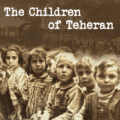Kosher, a term often heard in conversations about Jewish dietary practices, carries deep religious and cultural significance for those who follow Judaism. In this article, we will delve into the rules and principles of kosher food, exploring the origins, symbolism, and practical implications of this ancient dietary tradition.
Kosher is a set of dietary laws and regulations derived from the Torah, the foundational text of Judaism. These rules outline the permissible and forbidden foods, as well as guidelines for their preparation and consumption. Kosher food practices serve as a way to maintain a sacred connection to Jewish traditions and to live a life of spiritual discipline.
Kosher food rules are deeply rooted in Jewish religious beliefs and practices. They embody the principle of kashrut, which translates to “fitness” or “suitability.” By adhering to kosher laws, Jewish individuals seek to cultivate mindfulness in their choices and actions, aligning their daily lives with divine teachings. Kosher dietary practices symbolize the importance of self-discipline, gratitude, and respect for all living creatures.
Kosher Food Categories:
- Meat: Kosher meat must come from animals that meet specific criteria, including being slaughtered by a trained Jewish person using a precise method known as shechita. Certain parts of the animal, such as forbidden fats and sciatic nerves, are prohibited for consumption.
- Dairy: Kosher dairy products must come from kosher animals, and they must be produced using equipment that has been meticulously cleansed from any contact with meat products.
- Pareve: Pareve refers to neutral foods that are neither dairy nor meat. These foods can be consumed with either meat or dairy products, adding versatility to kosher meal preparations.
- Separation of Meat and Dairy: The kosher laws strictly prohibit the mixing of meat and dairy products in cooking, serving, and consumption. Separate utensils, dishes, and preparation areas are maintained for each category.
To ensure the kosher status of food products, many Jewish communities rely on certification agencies that inspect and grant kosher certification. These agencies assign kosher symbols, such as the well-known “K” or “OU,” which can be found on packaging to indicate that the food meets the kosher standards.
Kosher food rules in Judaism encompass much more than mere dietary restrictions. They serve as a profound expression of faith, connecting Jewish individuals to their heritage, spiritual values, and the wider community. Adhering to kosher dietary practices encourages mindfulness, gratitude, and ethical considerations in daily life. While it may require additional effort and attention, the observance of kosher laws fosters a sense of spiritual fulfillment and a deepening of Jewish identity.
















